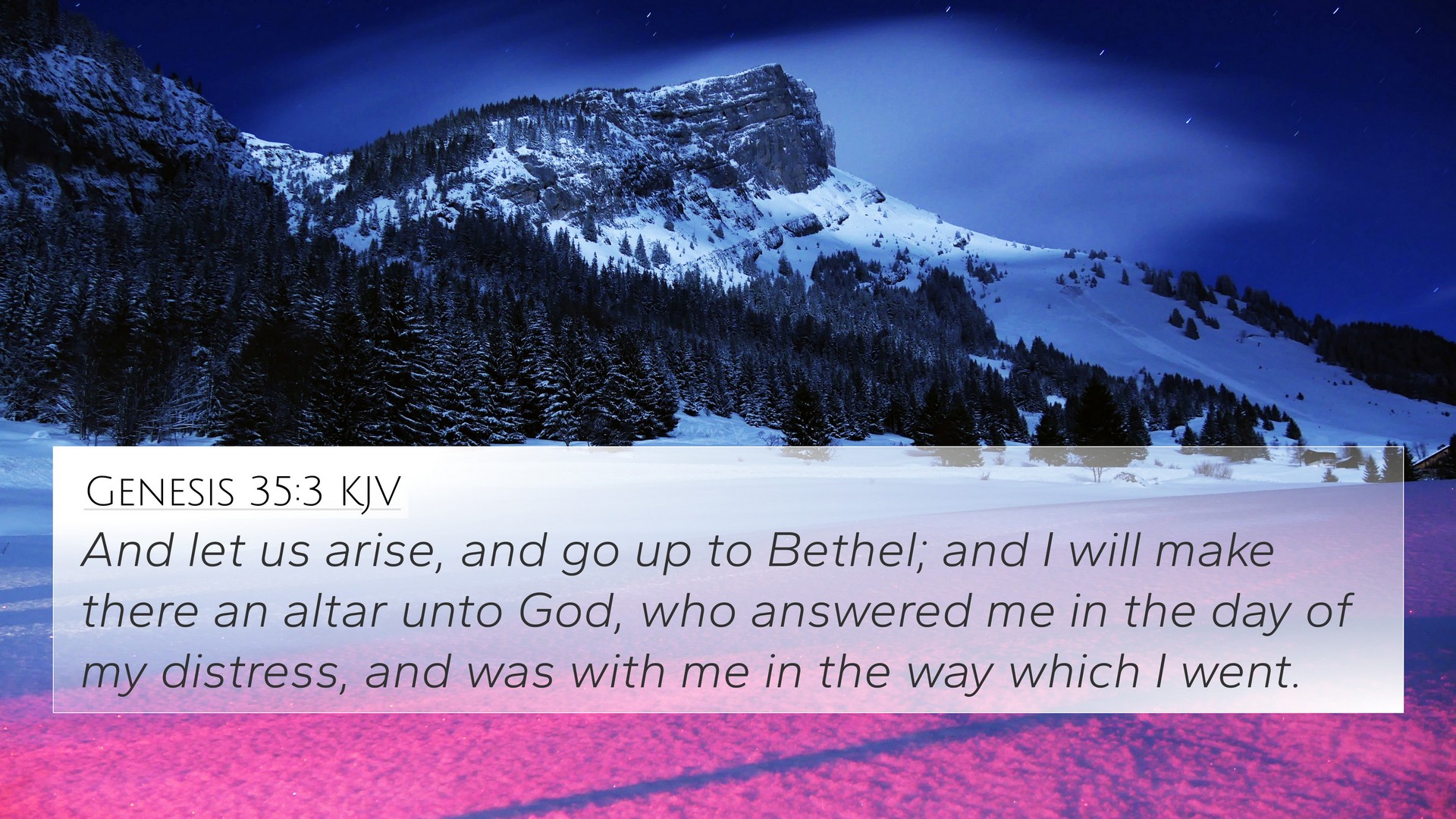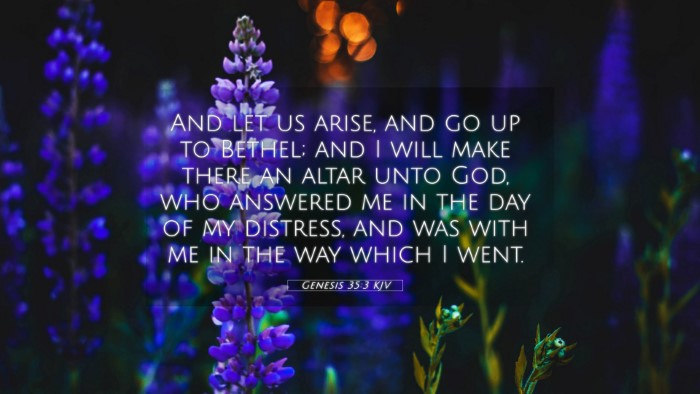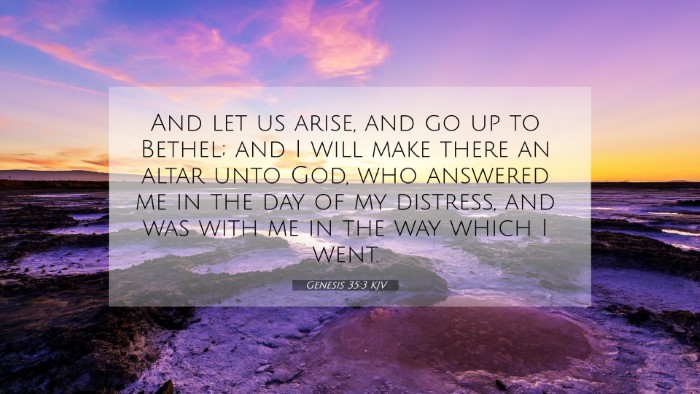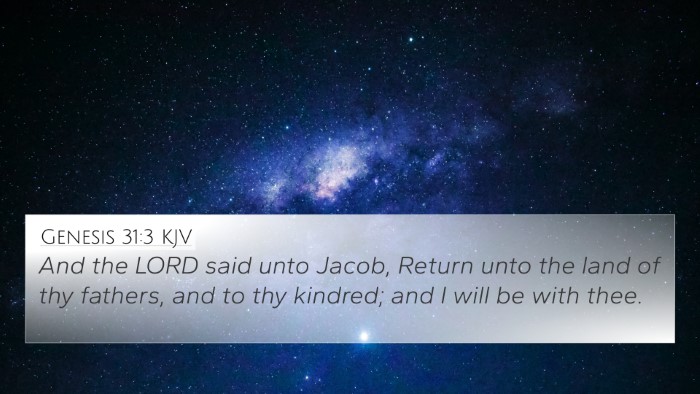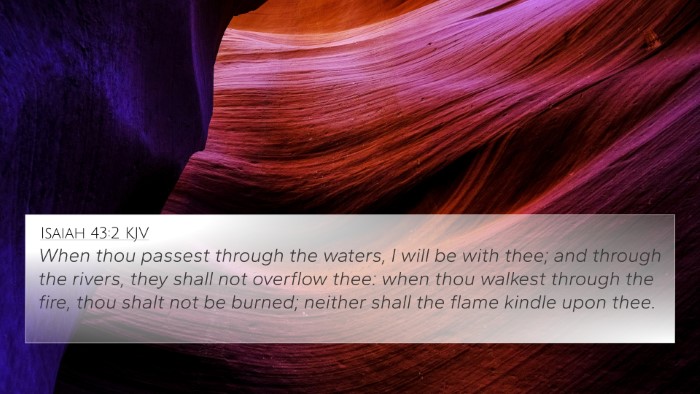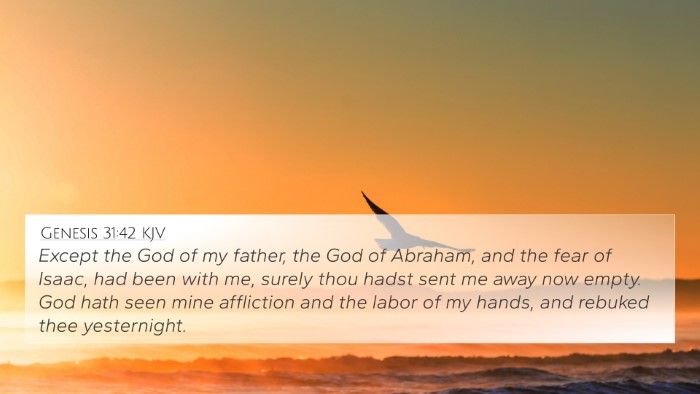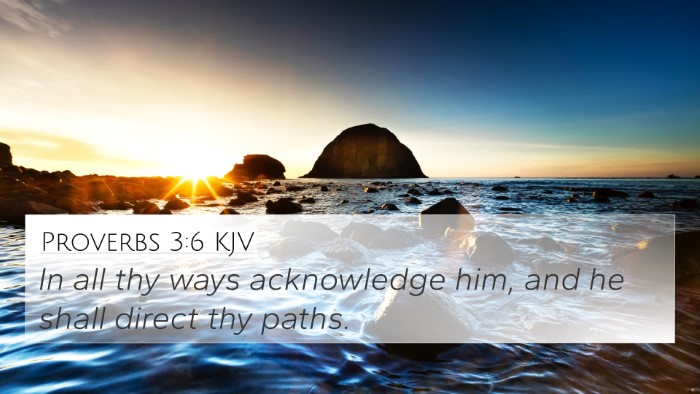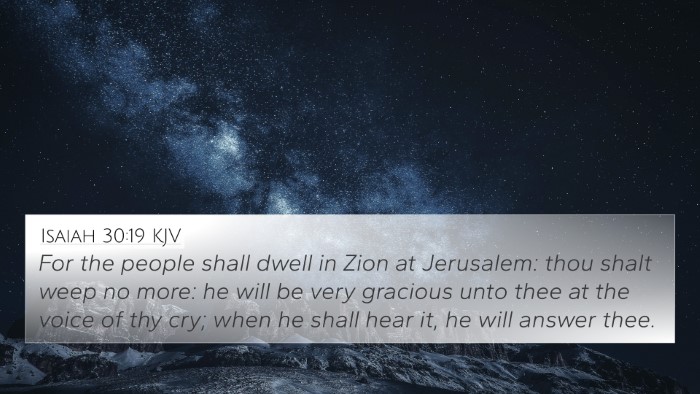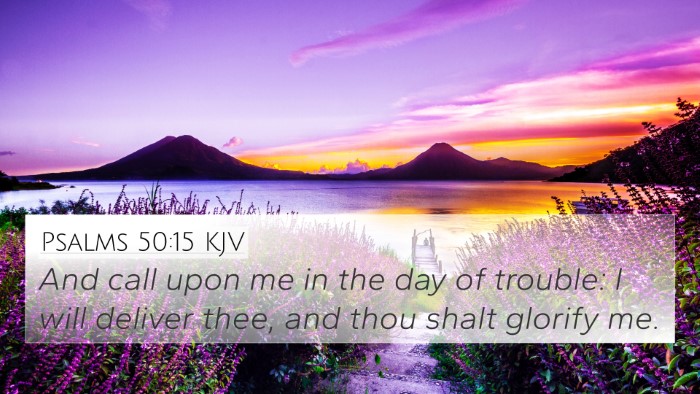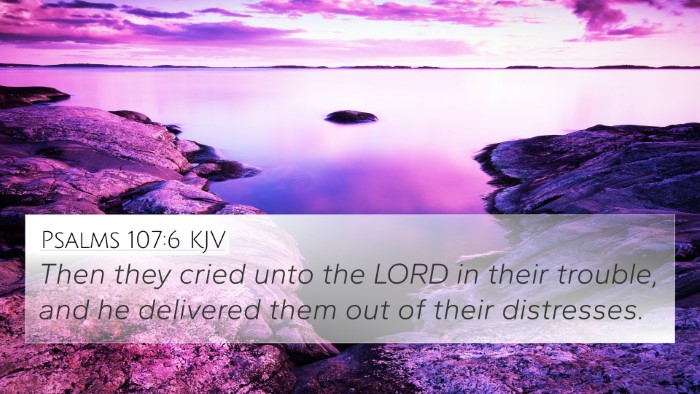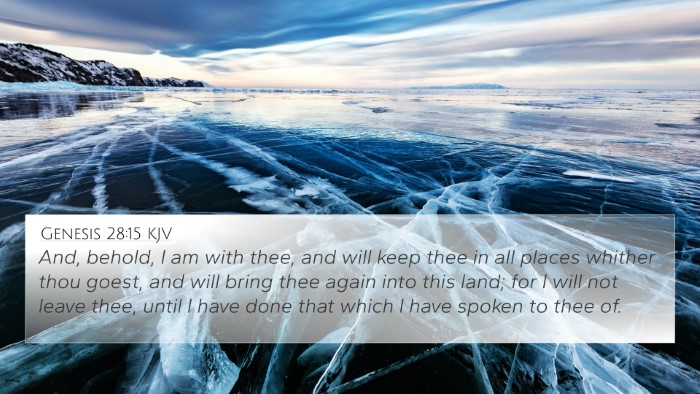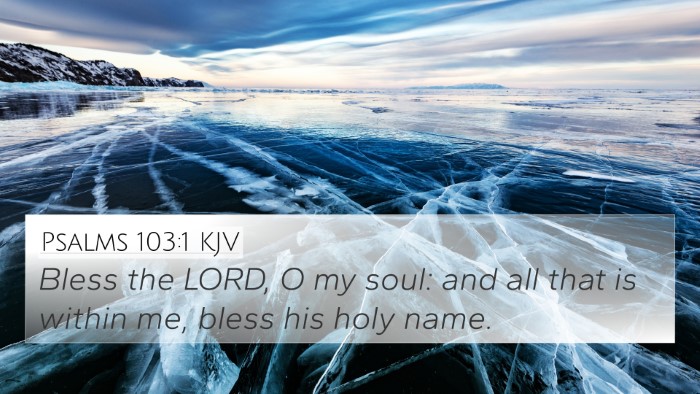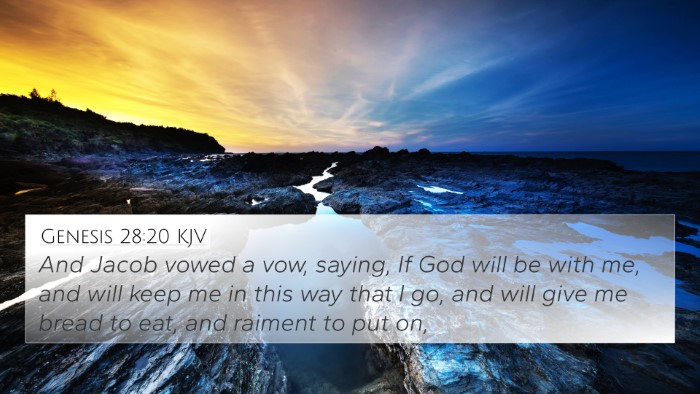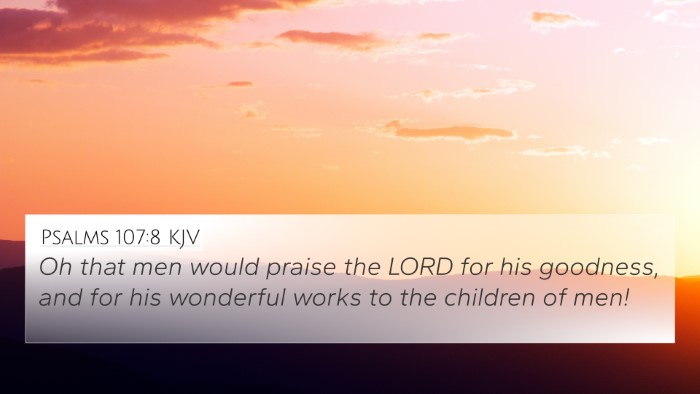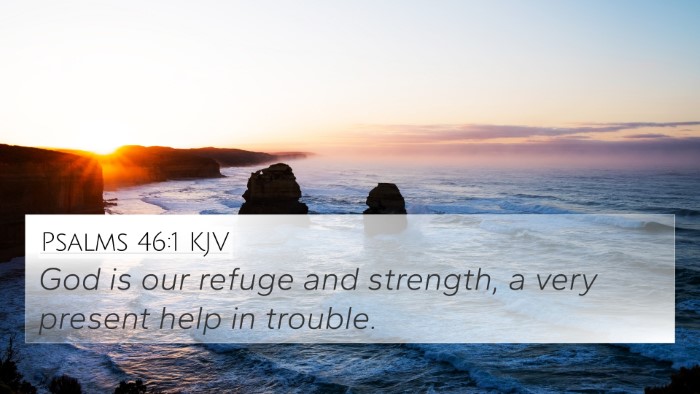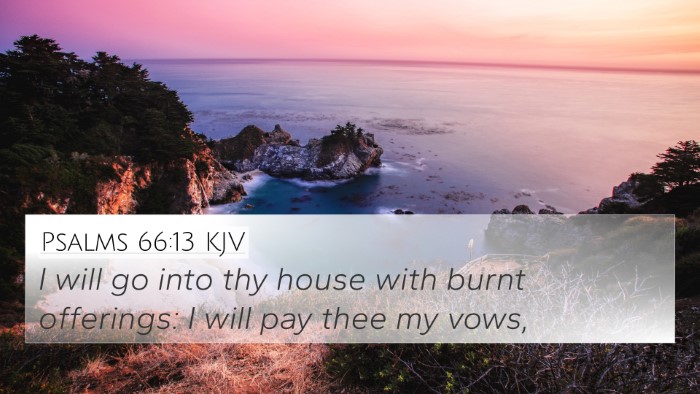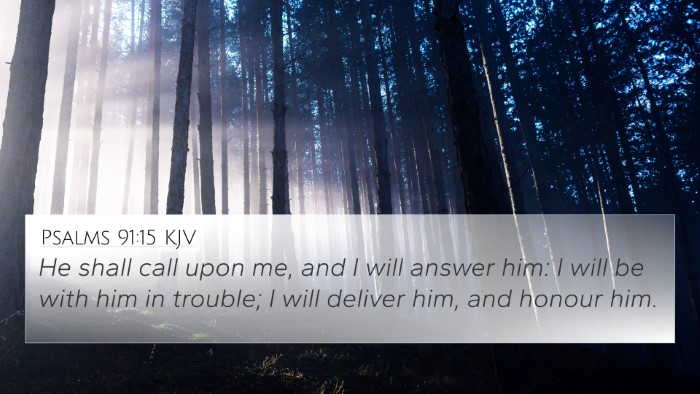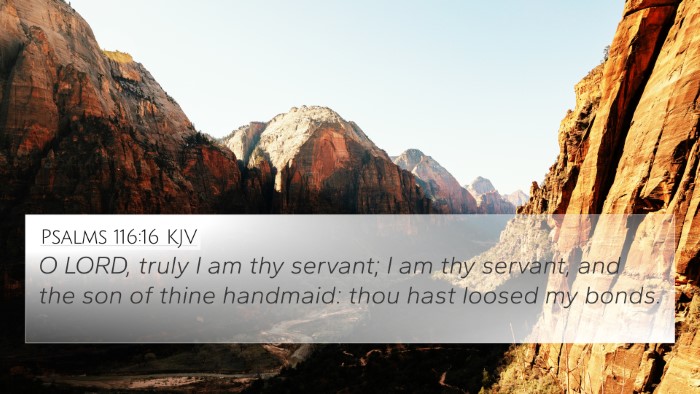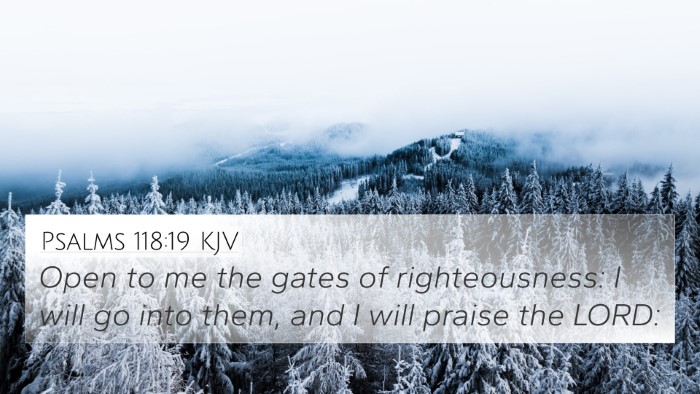Understanding Genesis 35:3
Genesis 35:3 states: "And let us arise, and go up to Bethel; and I will make there an altar unto God, who answered me in the day of my distress, and was with me in the way which I went." This verse contains profound significance both in its immediate context and in its connections with other Biblical texts.
The command to go to Bethel holds historical weight, as it was the site where Jacob had encountered God, marking it as a place of divine revelation. To fully grasp the depth of Genesis 35:3, we can explore insights from various public domain commentaries to glean a comprehensive meaning.
Insights from Commentaries
-
Matthew Henry:
Henry underscores Jacob's desire to return to Bethel, a place associated with his past encounters with God. This act symbolizes a renewal of Jacob's faith and commitment to God as he seeks to worship Him properly after enduring various hardships.
-
Albert Barnes:
Barnes emphasizes the necessity of worshipping God in a designated place, which signifies the importance of organized worship. He notes Jacob's gratitude for God's past assistance, highlighting that in times of distress, acknowledging God's faithfulness strengthens the believer's resolve to trust in Him.
-
Adam Clarke:
Clarke offers insight into the concept of altars in the Old Testament. He explains that this act of building an altar represents an expression of thanksgiving and devotion, where Jacob acknowledges God’s continual presence in his life journey.
Thematic Connections to Other Bible Verses
Genesis 35:3 can be cross-referenced with various scripture passages that enhance our understanding of its themes. Here are some notable cross-references:
- Genesis 28:10-22: This earlier passage recounts Jacob's first encounter with God at Bethel, establishing the location's significance as a divine meeting place.
- Genesis 12:7: God's promise to Abraham in the same area emphasizes Bethel's importance in the unfolding covenant narrative.
- Genesis 22:9-14: The concept of altars as sites of sacrifice connects to Jacob's intentions to build an altar as an act of worship.
- Exodus 20:24: This verse gives instructions regarding altars, linking Jacob's act with the later requirements of the Mosaic Law.
- Psalm 19:14: A plea for God’s guidance reflects the same spirit Jacob shows in his recollection of divine assistance during distress.
- Isaiah 41:10: God's promise of support in times of trouble resonates with Jacob's acknowledgment of God's prior help.
- Matthew 18:20: The concept of gathering in God's name and presence can be seen as a New Testament reflection of Jacob's journey back to Bethel.
The Significance of Worship in the Believer's Life
Genesis 35:3 invites believers to reflect on the importance of seeking God in specific, set apart places. Worship is crucial for maintaining a relationship with God, and Jacob's journey back to Bethel serves as a metaphor for spiritual renewal and rededication.
Cross-Referencing and Biblical Themes
Engaging in comparative Bible verse analysis, one can observe how themes in Genesis 35:3 resonate throughout scriptures, enhancing the understanding of God’s nature and His ongoing relationship with His people. The act of remembering God's faithfulness in the past reassures believers in their current walk of faith.
Tools for Bible Cross-Referencing
- Bible Concordance: A valuable resource for finding specific terms and their occurrences throughout the Bible.
- Bible Cross-Reference Guide: Tools that help identify scripts that correlate with specific passages.
- Cross-Reference Bible Study: Methods to deepen understanding through the interconnectedness of scriptures.
Conclusion
Genesis 35:3, therefore, stands not just as a historical account but as a profound invitation for believers to reconnect with God, acknowledging His faithfulness, and committing to worship in a way that honors Him. By examining connections between Bible verses, believers can deepen their spiritual understanding and appreciation for the continuity of God's presence throughout the Scriptures.
